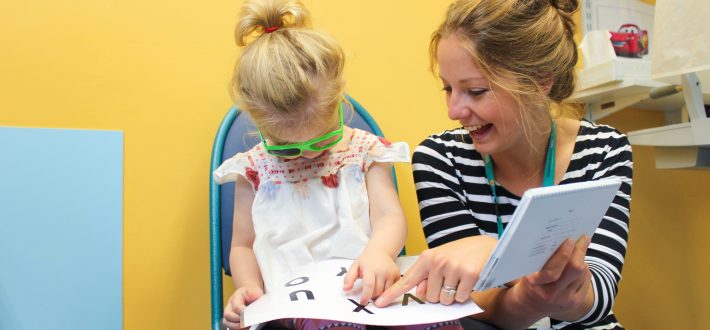- Newborn - follows a face in the centre of their view
- 6-8 weeks - follows a moving object or face by turning their head, smiles at things or people they like.
Vision
Please see the following page for information about signs that may suggest your child has a problem with their vision and what you should do if you are concerned by clicking here.

- Show your baby pictures of faces and colourful books and toys.
- Point out new things to your baby.
- Play peek-a-boo and hide and seek.
- Not fixing and following moving objects or faces by the age of 3 months.
- Not smiling responsively by 3 months of age.
- Appears to have a squint or unequal movements with their eyes after the age of 3 months (babies younger than this can sometimes appear to squint (eyes turning in)).
- Random or repetitive eye movements. Difficulties with development of fine motor skills may indicate a problem with vision, so please read this section also.
- If at any age you notice a white reflection in the pupil (dark centre circle) of the eye.
Speak with your health visitor or GP early if you may have any concerns about your baby's vision or eyes. They can help refer your baby to have a formal eye test.




